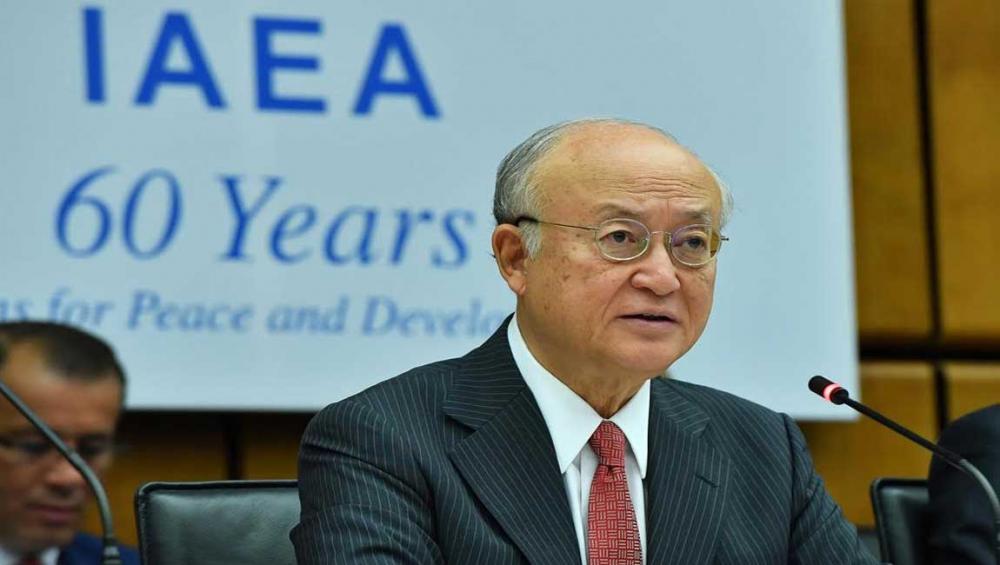Just Earh News 13 Jun 2017, 09:27 am Print

Dean Calma /IAEA
“I remain seriously concerned about the nuclear programme of the Democratic People's Republic of Korea,” International Atomic Energy Agency (IAEA) Director General Yukiya Amano told the Agency's Board of Governors. “It is deeply regrettable that the DPRK continues to show no sign that it is willing to comply with relevant UN Security Council resolutions.”
Earlier this month, the Security Council strongly condemned the DPRK's nuclear weapons and ballistic missile development activities and decided to extend the existing sanctions to more individuals and entities.
Amano called on the DPRK to comply fully with its obligations under those resolutions, to cooperate promptly with the Agency, and to resolve all outstanding issues, including those that have arisen during the absence of Agency inspectors from the country.
He also expressed his intention to enhance the Agency's readiness to play an essential role in verifying the DPRK's nuclear programme.
On Iran, Amano said the Agency is verifying and monitoring the country's implementation of all its nuclear-related commitments under the Joint Comprehensive Plan of Action, an agreement reached between international negotiators and Iran.
He said the Agency continues to verify the non-diversion of nuclear material declared by Iran under its safeguards agreement, with evaluations ongoing about the absence of undeclared nuclear material and activities in Iran.
Amano said that the IAEA has received an invitation to be represented at the second session of the UN Conference to negotiate a legally binding nuclear weapons ban to be held in New York from 15 June to 7 July.
“After this meeting of the Board, I plan to respond to the President of the Conference, considering all relevant factors,” he said.
On technical cooperation, he explained how nuclear technology can contribute to health, agriculture and other aspects of sustainable development, citing such examples as how patients with cancer or arthritis in Sri Lanka benefited from improved radioisotope-based therapy processes and how the agency's support made it possible for experts to analyse pesticides in crops in Panama.
On nuclear energy, he reported that there are 449 power reactors in operation in 30 countries. Installed nuclear capacity is now the highest that it has ever been at 392 gigawatts electrical. Twenty new reactors were connected to the grid in the last two years, the highest number since the 1980s. Sixty power reactors are being built around the world, mostly in Asia, he said.
- USD 5,000 fine for illegal entry: US unveils toughest immigration penalty yet
- Bangladesh: Former PM Khaleda Zia’s emergency medical evacuation to London delayed. Know the reason
- Mystery killing in Gaza: Key anti-Hamas leader Yasser Abu Shabab dead
- Washington DC shooting fallout: USCIS indefinitely halts Afghan immigration pending security and vetting review
- Trump accepts Xi’s invitation for Beijing visit during telephone interaction: Talks cover trade, Ukraine, and Fentanyl



-1763561110.jpg)


